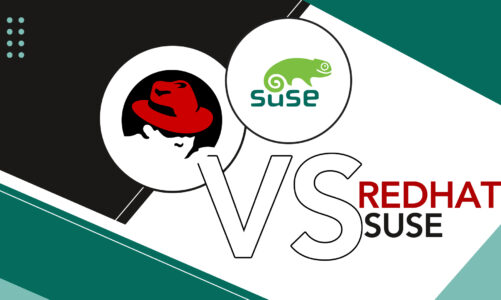Ensuring security is of utmost importance for all operating systems, including Linux. However, out of many distributions available, users often come down to two options: Debian and Fedora. Again the question that often comes up among security-conscious users is which of these two is more secure. Is Debian more secure than Fedora, or is it vice versa? How about conducting a short analysis? We can begin by acquiring a fundamental understanding of each.
What is Debian?
Based on the Linux kernel, Debian Linux is a widely used and reliable open-source operating system. It was developed entirely by a community of volunteers, which ensures that the OS is free of proprietary software.
The package management system of Debian Linux is highly regarded for its strength, as it streamlines the process of installing and overseeing software packages. Featuring advanced tools like apt-get and dpkg, users can effortlessly install, update, and uninstall software packages.
The operating system undergoes rigorous testing and review by the community before each release, resulting in a stable and secure system. However, Debian Linux has a conservative approach to updates and releases, which ensures the stability and security of the OS, but also results in longer release cycles.
Debian’s latest release, version 11.3, also known as “Bullseye,” is an exceptionally stable and secure operating system. It is built upon the latest Linux kernel, offering enhanced performance, better hardware support, and many bug fixes, making it an excellent choice for users who value reliability and security.
What is Fedora?
Fedora is a widely-used and inventive Linux operating system with a range of versions, among them the Fedora Workstation, which is tailored to the needs of developers. Its reputation stems from its reliability, ability to function with diverse hardware and dedication to incorporating open-source elements. The community support available through forums and other resources is strong and reliable, thanks to its sponsorship by Red Hat.
Fedora’s default desktop environment is GNOME, but it also supports other desktops such as KDE Plasma, LXQT, MATE, and more. Users have the freedom to personalize their desktop environment as per their liking due to this adaptability.
For personal computers, Fedora 37 is an excellent option as the most recent release of Fedora. It offers useful features, security enhancements, and bug fixes with each minor release, ensuring that users have access to the latest improvements and technologies.
Security Features
One of Debian’s most notable features is its focus on security. Debian’s development team emphasizes security throughout the distribution’s design, architecture, and implementation. Debian uses a rigorous process to ensure that all its packages are secure before they are included in the distribution. This process involves extensive testing, debugging, and code review by experienced developers.
Conversely, Fedora also puts significant focus on ensuring security. Fedora is designed to be secure out of the box, and its default configuration includes several security features such as SELinux, a mandatory access control system, and a firewall. Fedora also has a robust security team that provides security updates promptly.
Vulnerabilities
No operating system is entirely immune to security vulnerabilities and potential exploitation techniques. Debian has had a few security vulnerabilities over the years, but its security team has been prompt in fixing them. Debian also has a stable release cycle that provides fewer vulnerabilities compared to Fedora’s frequent release cycle.
Fedora, being a cutting-edge distribution, is more prone to vulnerabilities and exploits. Fedora releases frequent updates to address security vulnerabilities, and its users are expected to update their systems regularly.
Debian vs Fedora: which one is more secure?
When comparing Debian and Fedora’s security features, it’s clear that both distributions place a strong emphasis on security. Users who prioritize stability and security over the latest technology will find Debian to be an excellent choice, thanks to its dependable and secure nature.
Fedora’s cutting-edge technology and user-friendliness make it an excellent choice for users who want the latest features and performance. If stability and dependability are a top priority, Fedora’s regular updates and introduction of new features may not be the best fit for certain users.
Conclusion
The question of whether Debian is more secure than Fedora is not a straightforward one. While both distributions prioritize security, they do so in different ways.
Debian’s conservative approach may appeal to users who prioritize stability and reliability. At the same time, Fedora’s emphasis on innovation and up-to-date software may be more appealing to those who want to stay ahead of emerging threats. In the end, the decision of which distribution to choose rests on your own evaluation of which one best meets your requirements.



